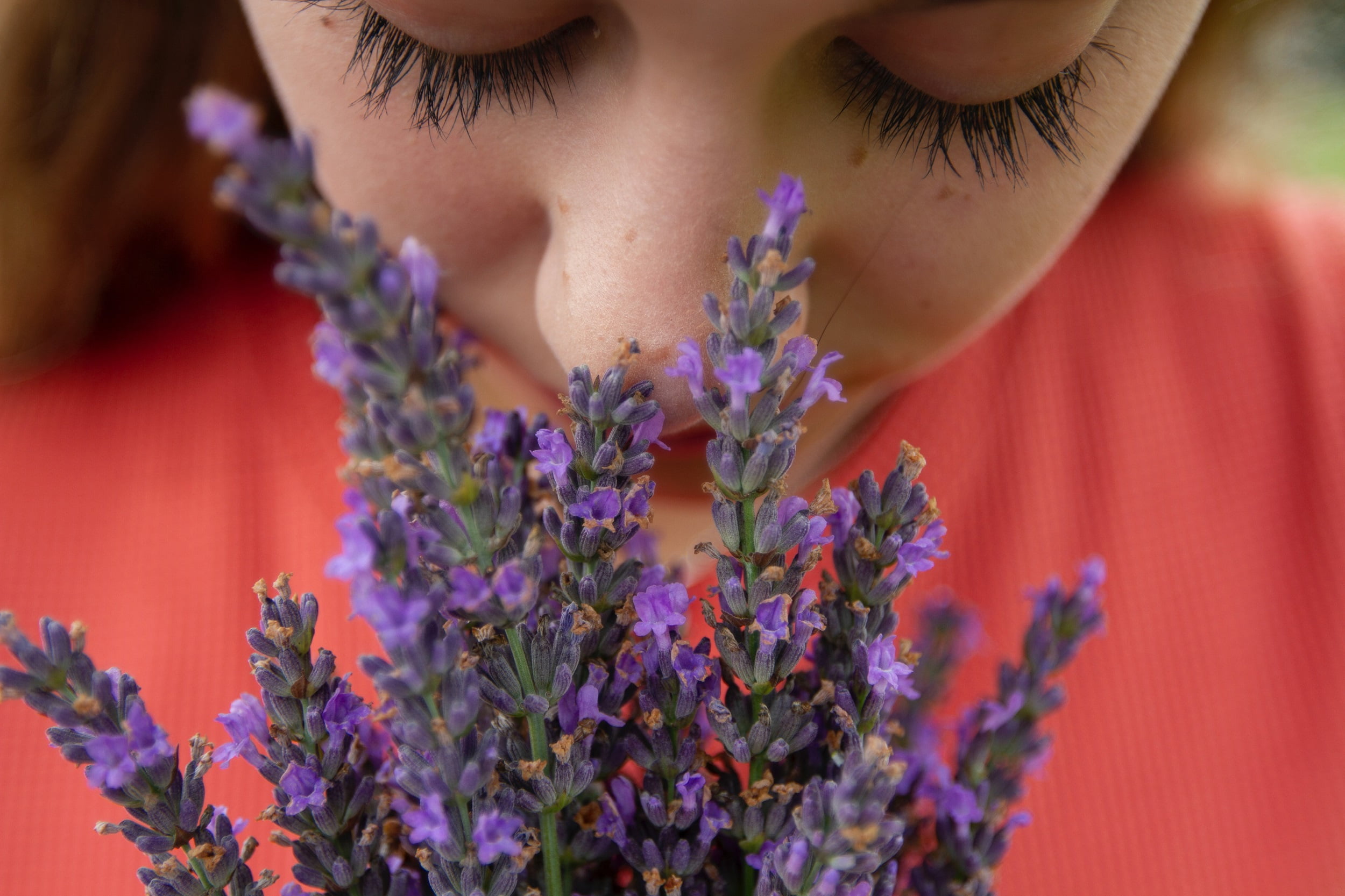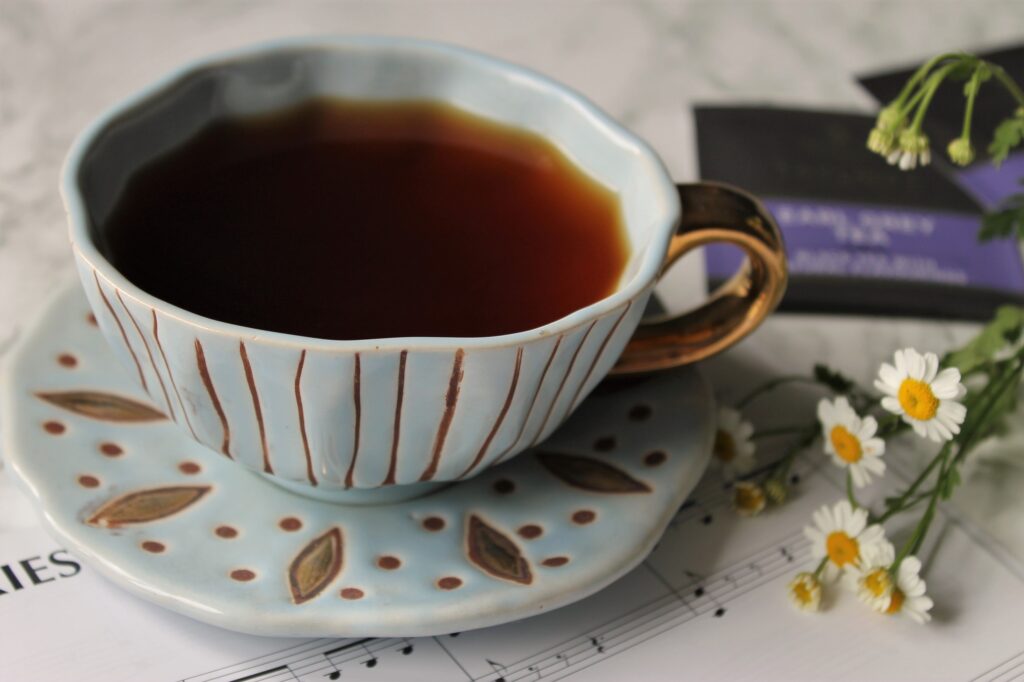
After COVID-19, I Can’t Smell Tea

After coming down with COVID-19 for the first time in August 2023, the blog here at Immortal Wordsmith ground to a halt. And it wasn’t just because I was feeling too ill to go through my usual tea review routine, or write tea guides for my readers. COVID-19 completely obliterated my sense of smell.
Parosmia, the bizarre condition where your brain interprets good smells as rotting manure, is a fairly well-known side effect of coronavirus. With this condition, naturally malty and rich aromas are usually transformed into lurid scents that make you want to hurl. So, any cup of hearty black tea would be banished to the back of the cupboard in favour of lighter green teas, white teas, and herbal brews.
That’s what I was prepared for. But what actually happened after COVID-19 was something else entirely.
COVID-19 and Smell
My symptoms came on like a typical case. Coughing, fever, fatigue. The flu-like symptoms with stomach cramps, night sweats and endless vomiting were deeply unpleasant, but thankfully they lasted no more than a few days.
Surprisingly, my airways remained relatively clear. The snot-fest I was expecting didn’t arrive and my sense of smell and taste remained normal (despite only managing to keep down slices of toast) for the first week and a half.
However, as the worst symptoms slid away, they took my sense of smell with them. That was two weeks ago, and my sense of smell is yet to return. Until it does, I will be unable to write more tea reviews for Immortal Wordsmith.
Drinking Tea During COVID-19
During my sickness, I did manage to drink a cup of black tea every morning. The warmth of the tea coupled with the caffeine and tannins made me feel slightly better – though it was by no means a “cure” for any symptom or the virus itself. The flavour and aroma of the tea at this time was irrelevant.
As my appetite returned and I was able to keep down full meals, I increased my tea schedule. Wary of the astringency of green tea, I stuck with mellow black teas which I knew my stomach could handle. But when I was finally able to return to some sense of normality with my daily routine, my sense of smell vanished.
All smells – good and bad – simply no longer exist. This includes foods, drinks, soaps, perfumes and even body odour. While it was certainly a bonus to not have a sense of smell during the sticky hot heatwave at the start of September, not being able to smell the glorious scents like freshly cut grass or a sweet iced tea was painful for me.

What Tea Can You Drink After COVID-19?
I had heard numerous times that up to 90% of what you can taste is actually made up of what you can smell. But this isn’t backed by science and it certainly isn’t backed by my experience. Despite not having a sense of smell, food tastes nearly exactly the same. If anything, I’d hypothesise that only 5% to 10% of taste is made up of what you can smell.
Risotto is just as creamy. Pasta is just as hearty. Ice cream is just as sweet.
But tea. Tea is not the same. And this breaks my heart.
I first noticed this when I brewed a large mug of Twinings Raspberry and Lemon. The allure of this tea is the sweetness of the raspberry with lemony citrus hints and a touch of rose petals in the aroma. Like many herbal fruit teas, the aroma is glorious and the flavour is… okay. But together, the whole experience is delicious. When you take away the aroma and you’re just left with the taste, it is dismal!
What was once a light and fruity cuppa became a dull, slightly herbal drink.
So, here is my conclusion. If you have lost of your sense of smell after COVID-19, you will be absolutely fine when it comes to eating food. But when you want a cup of tea, stick to beverages that have a robust flavour profile. Your standard English Breakfast Tea will become your best friend. For a herbal brew, Hibiscus Tea has got your back. Avoid any light teas or very aromatic teas. Jasmine Green Tea, for example, loses all of that jasmine freshness from the aroma and tastes just like a plain cup of green tea.
What If You Have Parosmia?
If you are suffering from parosmia after COVID-19, the opposite advice applies. Avoid any rich, malty and warm flavours. Just like caramelised onions and roasting meat, a hearty black tea should be avoided like the plague. Substitute in lighter green teas and white teas instead. You can also opt for some oolongs, but it is best to stick with lightly oxidised teas rather than heavily oxidised teas.
For those who have been drinking the same simple black tea everyday for years, then I recommend trying a tea explorer box from Teapro. This will allow you to get to know green tea, oolong tea, or white tea with small samples, so you can figure out what your skewed sense of smell and taste prefers.